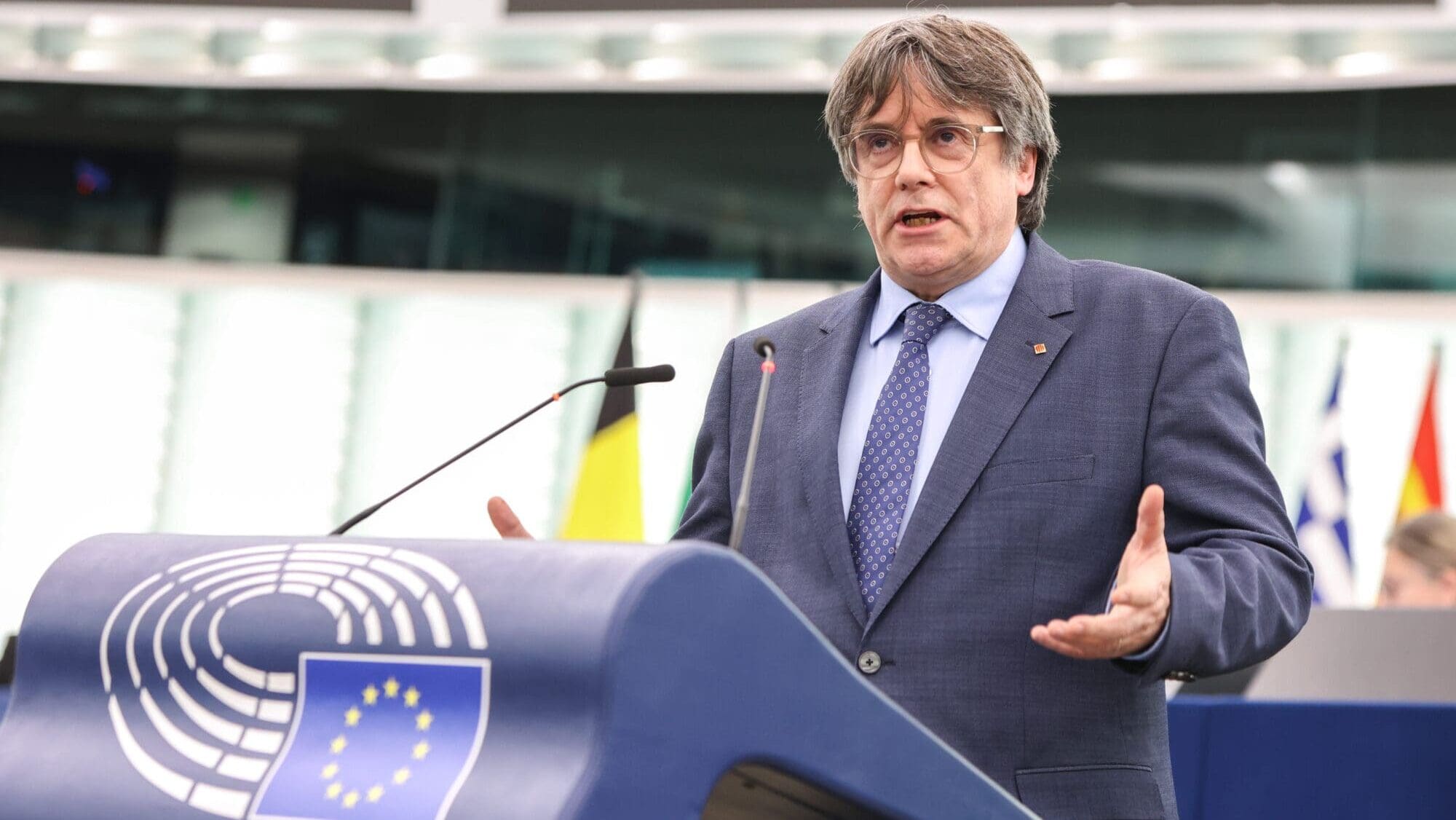
Carles Puigdemont
Photo: Frederic MARVAUX Copyright: © European Union 2023 – Source : EP
Carles Puigdemont, the former president of Catalonia, is set on returning to Spain for Thursday’s Catalan parliament session—despite a Spanish arrest warrant with his name on it. His goal is to oppose the investiture of Socialist Salvador Illa as Catalan president, saying Illa is a “Spanish nationalist” with no Catalan sensitivity.
Puigdemont led an illegal independence referendum in 2017 and subsequently fled to Belgium to avoid arrest by Spanish police. In exile, he remained the head of his party, Junts per Catalunya, and was the party’s presidential candidate in the recent elections.
Should Puigdemont enter Spain, Prime Minister Pedro Sánchez would have to make the tough decision of whether to arrest him or grant him an amnesty. Earlier this year, a controversial amnesty law that pardoned many separatists failed to gain judicial approval for Puigdemont’s particular charges. Instead, Supreme Court judge Pablo Llarena maintained the arrest order for the former Catalan president.
Puigdemont appeared defiant, and in comments on social media said, “If they arrest me, it will not be the first time.” He also denounced Sánchez’ lack of follow-through to make sure the amnesty law was justly applied by courts, saying the PM has been more concerned about the corruption investigation of his wife Begoña Gómez than the fate of the amnestied separatists whose parties prop up his government.
Sánchez depends on Puigdemont’s party and its seven votes in the national parliament both to maintain his government and to pass any legislation. The party has threatened to boycott the planned Catalan plenary session on Thursday, as well as to abandon its support for Sánchez nationally, should Puigdemont be arrested.
Catalonia is arguably the most politically unstable region in a country suffering through a weak government whose weakness is, ironically, also its strength. Now, it has just weeks to form a new government, or it will have to hold new elections in October.
The instability in Catalonia, headed by the country’s second city Barcelona, stems from the independence movement that has governed the region for more than a decade. But the movement itself is politically fragmented and failed to garner an absolute majority in the elections last May. Instead, the Socialist Party led in the elections, but they also did not achieve the majority needed to easily take over the governance of the region.
Since then, intense negotiations have been going on between the Socialists and the various separatist factions to form a government. Finally, the Socialists reached an agreement with Esquerra Republicana, a far-left separatist party whose election results were particularly poor. In exchange for supporting a regional government headed by socialist Salvador Illa, the Socialist Party—which also leads the national government—would grant Catalonia “fiscal sovereignty.” This means the region would no longer be subject to the national tax regime, including the collection of taxes by the central government and the redistribution of these taxes to regions throughout the country.
Under Spanish law, both central and regional governments collect taxes. The central government reallocates part of the tax money back to regions through a ‘system of solidarity.’ In an increasingly urbanized world, regions like Catalonia and Madrid generate more tax revenue due to their industrialization, globalization, population, and economic activity. Meanwhile, less dynamic regions lose population and viability. For decades, the central government has favored Catalonia to appease independentists.
Earlier this week, uncertainty loomed over whether the negotiated pact would proceed as the youth arm of Esquerra Republicana voted on whether or not to accept a government headed by Puigdemont. In the end, the party members voted in favor.
Now the vote in the plenary session of the Catalonia parliament will move forward on Thursday. Whether Puigdemont will be able to participate in the debate and vote remains to be seen.
